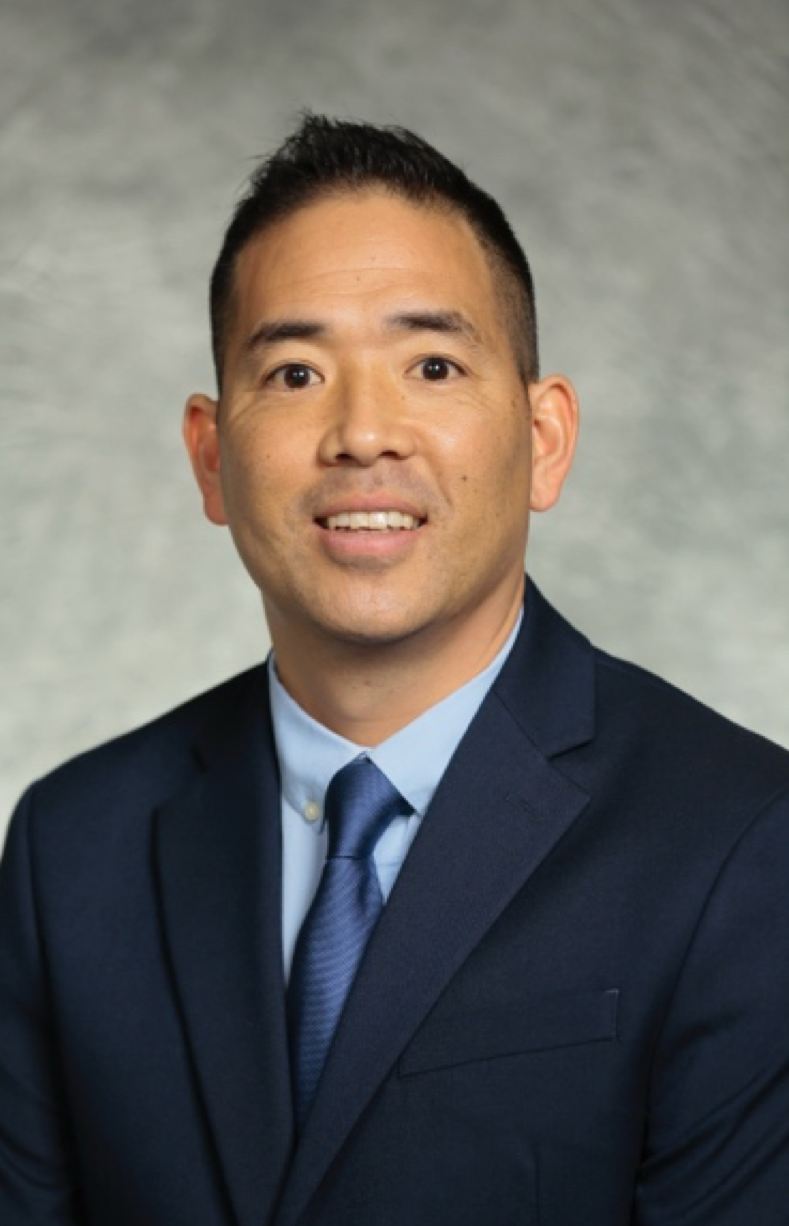Jeffrey B. Velotta1, Jin Ye Yeo2
1Department of Thoracic Surgery, Kaiser Permanente Northern California, Oakland, CA, USA; 2VATS Editorial Office, AME Publishing Company
Correspondence to: Jin Ye Yeo. VATS Editorial Office, AME Publishing Company. Email: vats@amegroups.com
This interview can be cited as: Velotta JB, Yeo JY. Meeting the Editorial Board Member of VATS: Dr. Jeffrey B. Velotta. Video-assist Thorac Surg. 2024. Available from: https://vats.amegroups.org/post/view/meeting-the-editorial-board-member-of-vats-dr-jeffrey-b-velotta.
Expert introduction
Dr. Jeffrey B. Velotta (Figure 1) is a thoracic surgeon at Kaiser Permanente Northern California, an adjunct Clinical Assistant Professor in the Department of Surgery at the University of California, San Francisco (UCSF) School of Medicine, and a Clinical Professor in the Department of Clinical Science at the Kaiser Permanente Bernard J. Tyson School of Medicine. Dr. Velotta received his MD from the George Washington University School of Medicine. He then went on to finish his general surgery residency at UCLA along with a postdoctoral research fellowship in cardiothoracic surgery at Stanford University and completed his cardiothoracic surgery fellowship at the Brigham and Women’s Hospital, Harvard Medical School. Dr. Velotta’s clinical and research interests focus on outcomes after regionalization for lung, esophageal, and mesothelioma surgery as well as improving time to treatment for lung cancer.

Figure 1 Dr. Jeffrey B. Velotta
Interview
VATS: What inspired you to specialize in thoracic surgery, especially minimally invasive lung and esophageal surgery?
Dr. Velotta: I really enjoyed taking care of patients throughout their whole journey from diagnosis to treatment and follow-up. Additionally, you often have to think like a thoracic oncologist in our specialty, thus knowing the entire disease process and being able to help treat the patient from not only a surgical standpoint but also from a medical standpoint. Lastly, the oncology part of thoracic surgery was the most appealing because it can be a very rewarding experience to perform oncologic resections that can help patients live longer.
VATS: Could you provide a brief overview of the recent advancements in minimally invasive esophagectomy (MIE)?
Dr. Velotta: I think MIE is a fascinating field in particular. Our prior research found that more efficient operative times for MIE lead to better outcomes (1). In addition, a novel way of closing the mediastinal envelope over the conduit allows better gastrointestinal function, less anastomotic leak, and overall better outcomes (2).
VATS: Can you elaborate on your research regarding outcomes after regionalization for lung, esophageal, and mesothelioma surgeries? What are some surprising or significant findings?
Dr. Velotta: This was my foundational start in outcomes research. We showed consistently that regionalization of lung, esophageal, and mesothelioma surgeries to specialized centers of excellence independently improved both short-term and long-term outcomes which was really groundbreaking at the time (3-7). The fact that regionalization continued to lead to improved outcomes across all thoracic oncologic disease processes was fascinating.
VATS: What are some novel ways to provide better pain relief that you have discovered? Could you share some examples that have impacted your practice greatly?
Dr. Velotta: Two main novel perioperative analgesic strategies have revolutionized the way we practice thoracic surgery. First, the addition of intraoperative Exparel intercostal nerve blocks has allowed us to send patients home sooner with less overall opioid usage (8,9).
Second, the introduction of cryoablation for thoracotomies has lessened the need for long-term epidural usage and may lead to overall better patient pain satisfaction, which is still currently under review by our team.
VATS: As an educator, what is your teaching philosophy, and how do you inspire and engage your students in the complex field of thoracic surgery?
Dr. Velotta: My main philosophy is that you have to learn by actually DOING, not just watching. Thus my approach is a highly autonomous one, where I put the confidence in the trainee during the operation and allow maximal autonomy by giving verbal feedback and positive reinforcement in real time.
VATS: What future research questions are you most excited to explore, particularly in the context of thoracic surgery?
Dr. Velotta: The treatment strategies behind ground glass opacities and whether to operate or observe along with continued improved uptake of biomarker utilization for earlier-stage disease will continue to be exciting and evolving aspects of the field.
VATS: As an Editorial Board Member, what are your expectations for VATS?
Dr. Velotta: I hope to expand our readership and editorial board to allow a robust international level of thoracic experts to continue to progress our journal and hopefully achieve PubMed accreditation in the near future.
Reference
- Tupper HI, Roybal BO, Jackson RW, et al. The impact of minimally-invasive esophagectomy operative duration on post-operative outcomes. Front Surg 2024;11:1348942.
- Susai CJ, Burapachaisri K, Hung YY, et al. Outcomes of mediastinal envelope closure during minimally invasive esophagectomy. Surgical Oncology Insight 2024;1(4):100104.
- Ely S, Alabaster A, Dominguez DA, et al. Effect of Thoracic Surgery Regionalization on 1- and 3-Year Survival after Cancer Esophagectomy. Ann Surg 2023;277(2):e305-e312.
- Ely S, Jiang SF, Dominguez DA, et al. Effect of thoracic surgery regionalization on long-term survival after lung cancer resection. J Thorac Cardiovasc Surg 2022;163(3):769-777.
- Ely S, Jiang SF, Patel AR, Ashiku SK, Velotta JB. Regionalization of Lung Cancer Surgery Improves Outcomes in an Integrated Health Care System. Ann Thorac Surg 2020;110(1):276-283.
- Ossowski S, Hung YY, Banks K, et al. Improving outcomes in malignant pleural mesothelioma in an integrated health care system. J Thorac Dis 2022;14(9):3352-3363.
- Ely S, Alabaster A, Ashiku SK, Patel A, Velotta JB. Regionalization of thoracic surgery improves short-term cancer esophagectomy outcomes. J Thorac Dis 2019;11(5):1867-1878.
- Dominguez DA, Ely S, Bach C, Lee T, Velotta JB. Impact of intercostal nerve blocks using liposomal versus standard bupivacaine on length of stay in minimally invasive thoracic surgery patients. J Thorac Dis 2018;10(12):6873-6879.
- Banks K, Ely S, Hsu DS, et al. Intercostal nerve blockade with liposomal bupivacaine reduces length of stay after video assisted thoracic surgery (VATS) lobectomy. J Thorac Dis 2022;14(1):18-25.
